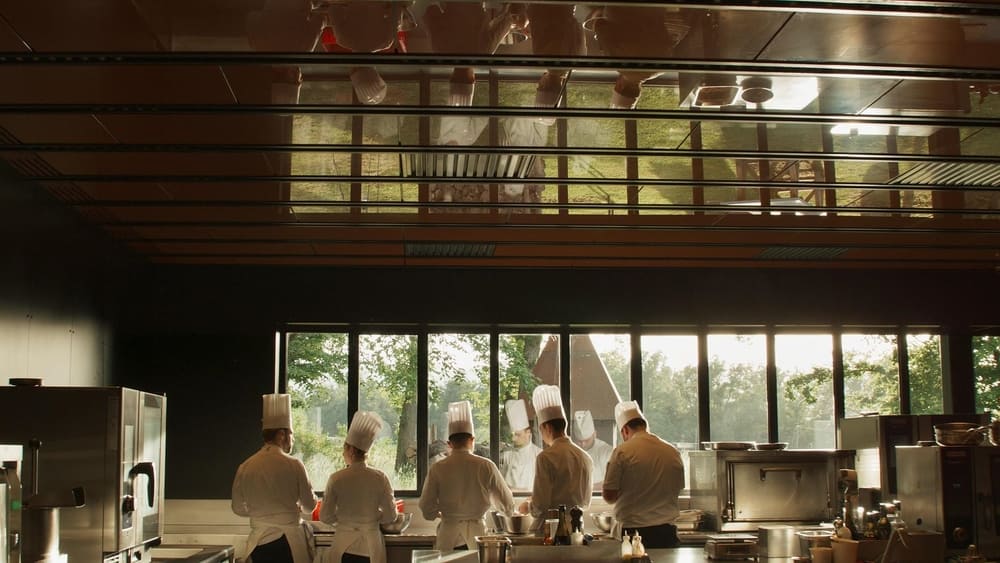The power of Frederick Wiseman’s argument in his new documentary “Menus-Plaisirs — Les Troisgros,” about a multi-generation French family of culinary artists, is that it isn’t an argument at all. There’s no persuasion on Wiseman’s part, no narration or talking heads. It’s purely an observational film. That lack of insistence is far more convincing an argument for the artistry of cooking than any explanation put forth. When you watch every bit of the labor that goes into creating meals like this, or when you hear the reactions of those experiencing it and discussing it with the chefs, you begin to understand how much fine dining can be a chef trying to convey something to his patrons as much as nourishment.
My favorite sequence in the film is the meal for Ukraine that Léo Troisgros puts together in his own restaurant, La Colline. With the ongoing war in Ukraine, the chef has decided to create a meal that is both a tribute to the region's cuisine and helps raise funds to send to the Red Cross working in the nation. The meal preparation isn’t all that different from any other meal being prepared in the film, but it’s the weight behind the political stand the chef is taking that gives it a driving force the rest of the film doesn’t have. Everything has to be just right because if it isn’t, it feels like a slap in the face to the people they are trying to support. The meal can’t just taste good. It has to send a message.
Eventually, as is the case in any four-hour film primarily about process, the film gets repetitive and starts to drag. The mesmerizing spell the film has cast over you for much of its runtime begins to break when you start to ask where the film is going. And, indeed, the film doesn’t really go anywhere. You understand what the film is about and what it’s trying to say fairly quickly, and it doesn’t deviate from that. Occasional asides showing the process for how the restaurants get their meats, cheeses, and vegetables (among other things) are there to break up the repetitiveness and round out the picture of how the restaurant operates. But they aren’t nearly as engrossing as the cooking sequences — some exceptions, of course, like the man with the cattle farm explaining the climate impacts of his farm and how he tries to solve those problems. Still, when the film hooks you, you feel like you could sit there for hours. Wiseman doesn’t try to manufacture excitement or intrigue. He trusts the viewer to find their own enjoyment in his film.
“Menus-Plaisirs — Les Troisgros” is one of the most riveting documentary experiences of the year, even for someone who doesn’t know or care anything about fine dining or culinary arts. Wiseman’s observationalist approach remains fresh even after so many decades because of the footage-talking head-footage formula that so many contemporary documentaries fall into. It may not push the form forward, but it does take it back to its roots in a simple yet compelling way.

